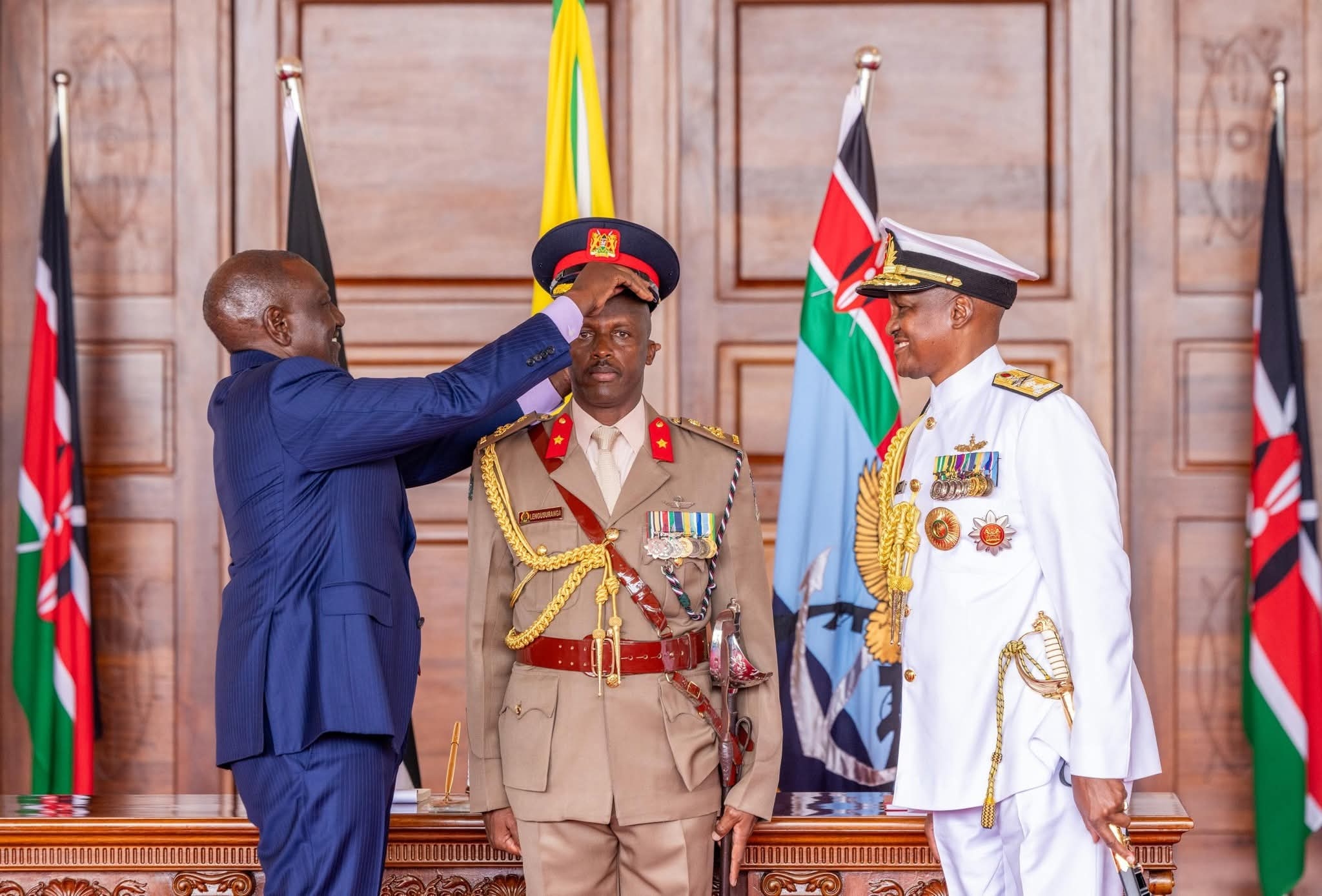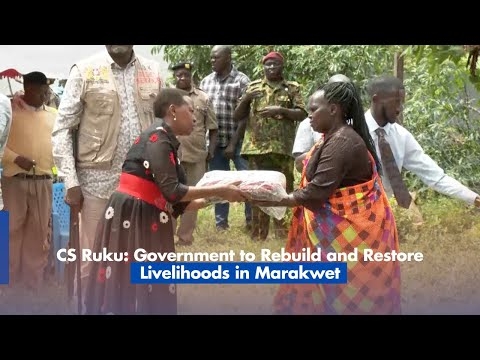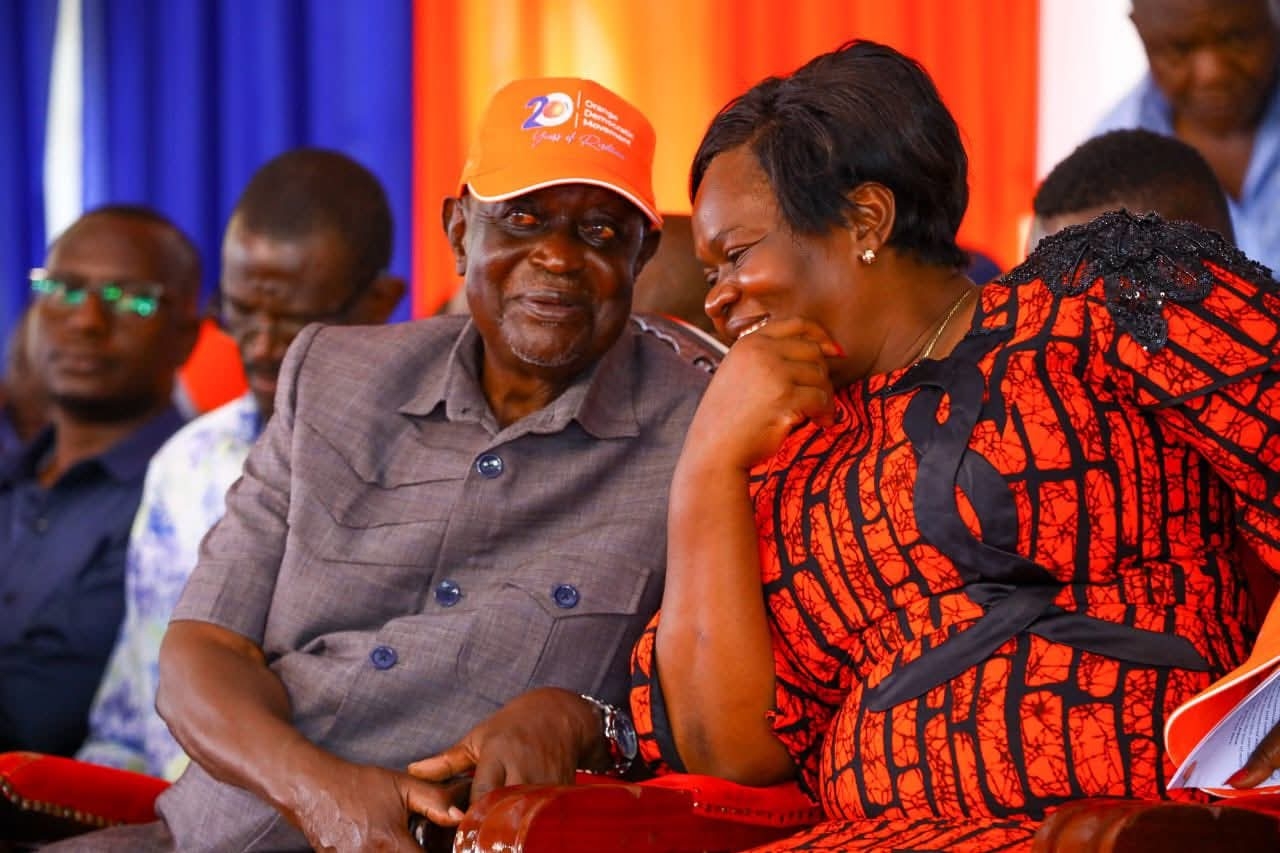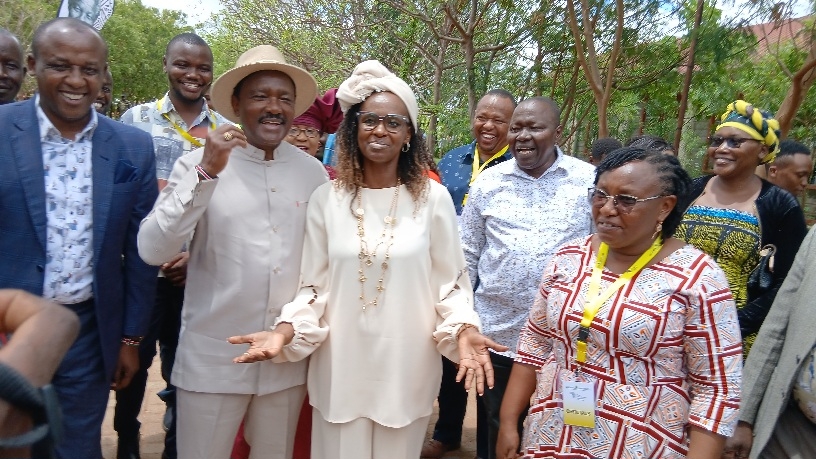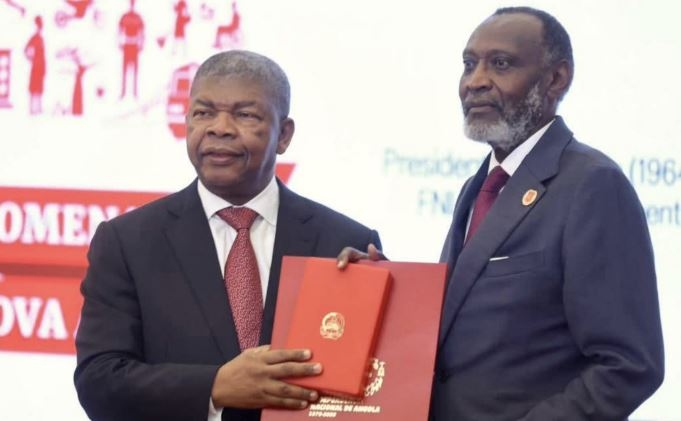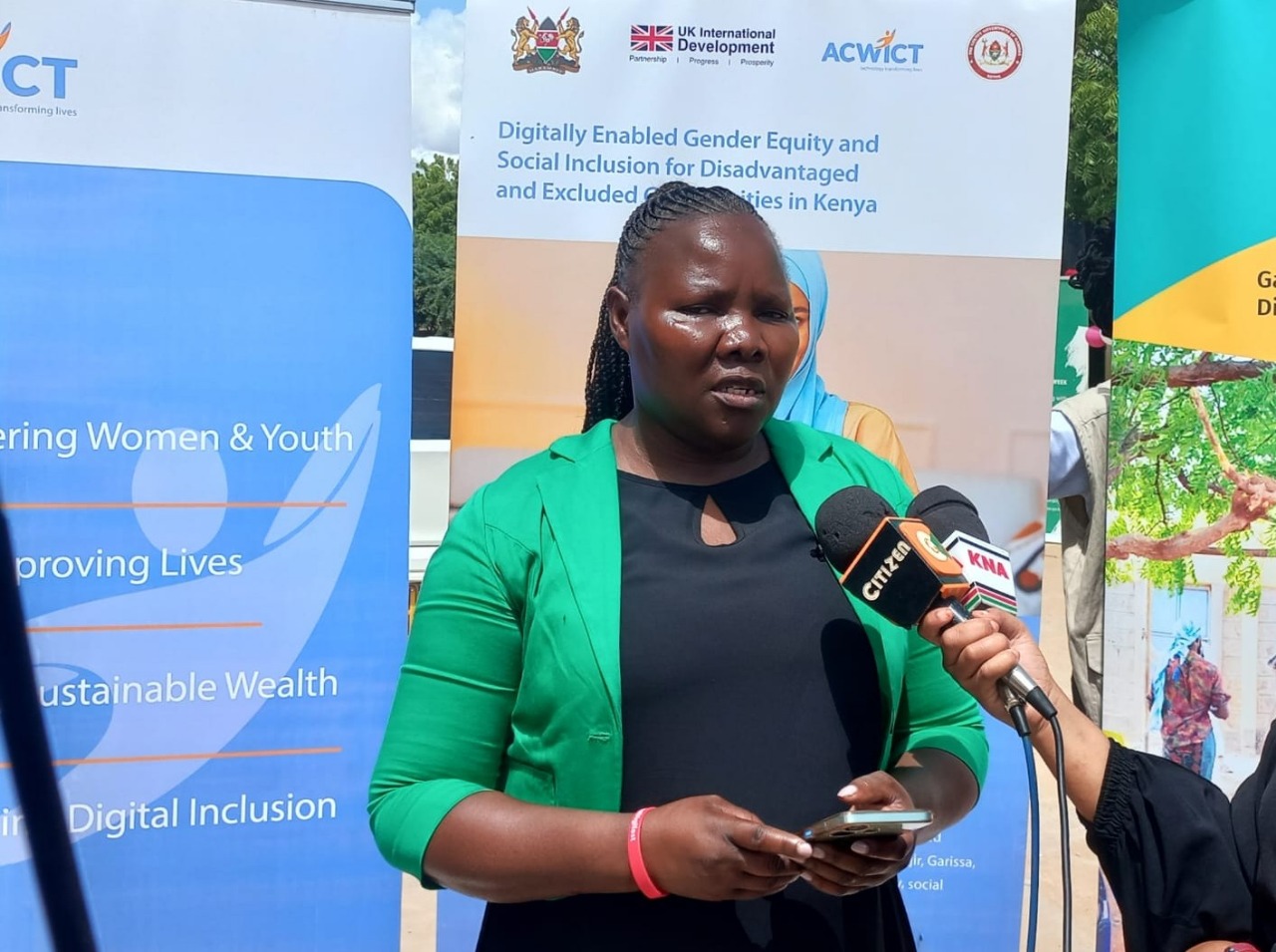
The Head of Programmes at ACWICT Merciline Oyier speaking to the press in Garissa.
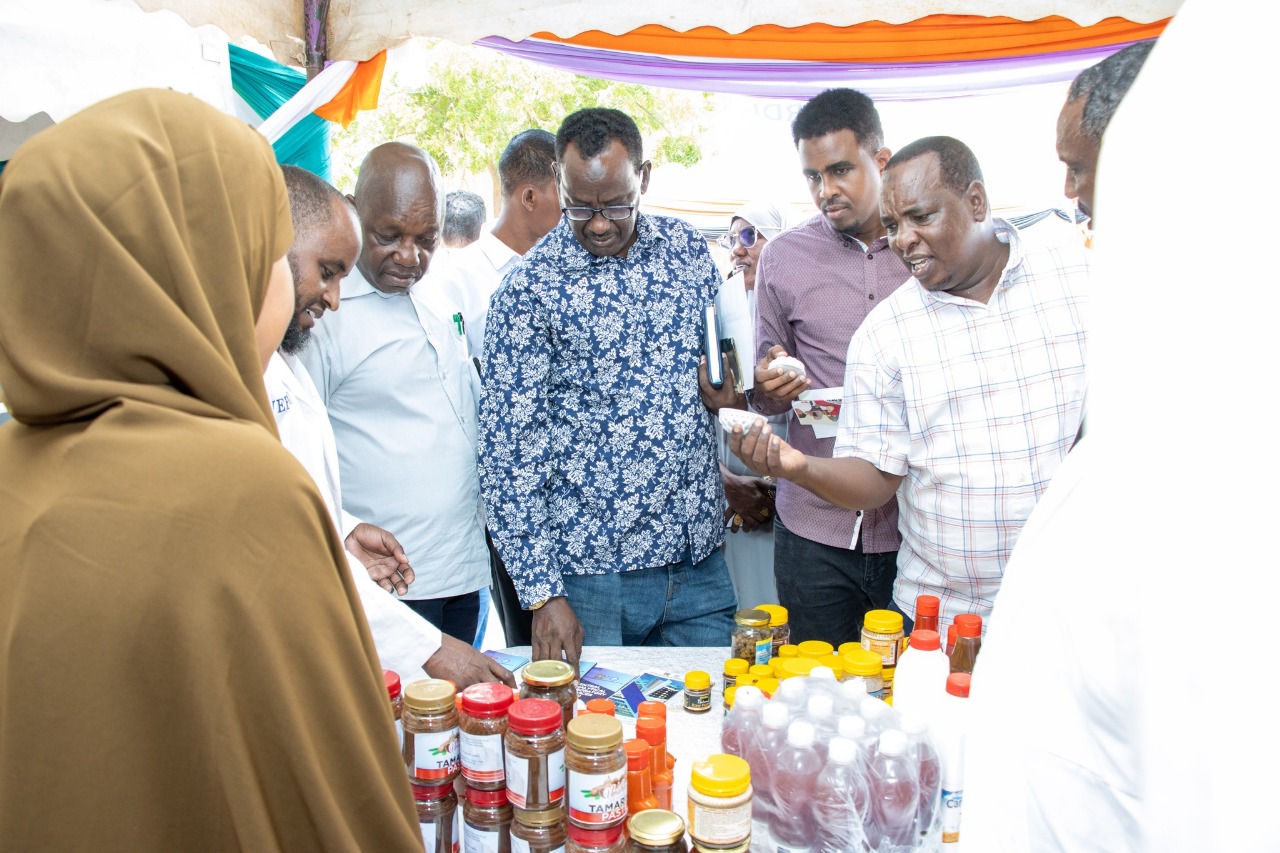 Stakeholders looking at exhibition tents for ICT services
offered.
Stakeholders looking at exhibition tents for ICT services
offered.At least 1,250 young women between the age of 18 to 34
years are set to benefit from a market-driven digital skills training programme
in Garissa County to boost access in the communities.
The beneficiaries will act as Community Digital
Champions and will be available to help their local communities in accessing
the government digital services and other online activities.
Since the inception of the Social Health Insurance
Fund, the registration for persons into the Social Health Authority (SHA) has
been low in Garissa County with allegations that the community health promoters
tasked with registration exercise had little digital literacy.
This training, which will involve various
stakeholders, will seek to seal such gaps and enhance digital inclusion among
the marginalized communities.
The training further aims at promoting digital
employability through training of at least 125 young women in market-driven
digital skills, mentorship, and entrepreneurial skills with a 70% job placement
target.
The three-year initiative dubbed Digitally Enabled
Gender Equity and Social Inclusion for Disadvantaged and Excluded Communities
in Kenya (DEGESI) will be implemented by the Semi-Arid Resilience Network
(SARN) in partnership with African Centre for Women, Information, and
Communications Technology (ACWICT) with financial support from UK Government
Digital Access Programme (UK DAP).
The programme is targeting women and girls, senior
citizens, smallholder farmers, and persons with disabilities to digitally
empower them and ease access to digital services.
Speaking during the inaugural meeting of the programme
in Garissa, the Head of Programmes at ACWICT Merciline
Oyier said that the project will help in bolstering social economic
empowerment among digitally excluded persons in the country.
“We are doing the digital skilling for citizens to be
able to bolster the socio-economic empowerment for the communities that are
excluded from the mainstream spaces so that they can access digital services,”
Oyier said.
“We are giving preference to young women, smallholder
farmers and those in the boda boda sector because as you know, these sectors
provide many employment opportunities for many of us and yet they do not have
the skills to enable them to optimiSe on the opportunities presented by the
digital structures,” she added.
Oyier said that apart from being able to access
government services in the E-citizen portal, the beneficiaries will gain the
capacity to leverage on digital resources for improved livelihoods, and
contribute to the national digital economy.
Ebla Dagane Hassan, the secretary for the Garissa
Farmers Network said that access to market for the local farmers has been a
challenge but leveraging on the market driven digital skills, they would be
able to reach a bigger target for their produce.
“The biggest issue we have is the market for our
produce. You know, even before growing the crops, we have to ask ourselves who
will be the target market and this has been a challenge,” Ebla said.
“With an opportunity like this to acquire new skills, I think we are going to start moving into the digital platforms and embrace ecommerce such that if we develop our website, we will be able to reach or expand our market and most importantly, align our prices to other markets,” she added.


